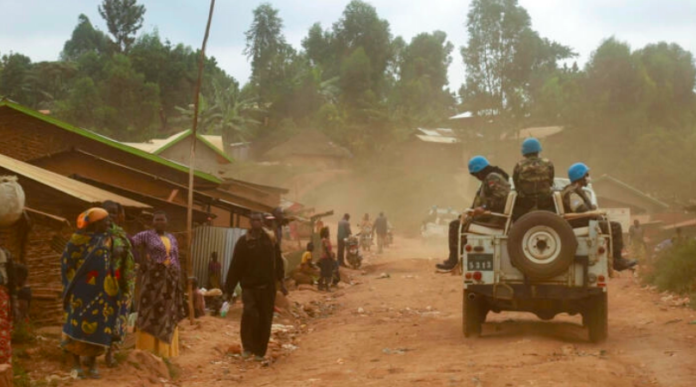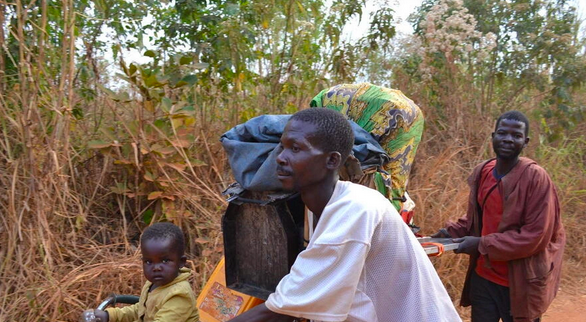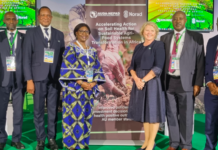
By Gabs Mia
Kinshasa, DRC: The situation in Ituri province, particularly in Djugu territory, located in the northeastern part of the Congo river basin, has seen a distressing surge in violence, with a significant impact on civilian lives.
Bintou Keita, the UN Secretary-General’s Special Representative in the Democratic Republic of Congo and Head of the United Nations Organisation Stabilization Mission in the DRC (MONUSCO), reported alarming figures to the UN Security Council on Tuesday, 20 February. According to her report, in the span of just one week, 26 civilians fell victim to the ongoing tensions between the Zaire militia and the Cooperative for the Development of Congo (CODECO).

An internally displaced Congolese family carry their belongings as they trek in search of safety in Ituri province, February 2018.© UNHCR/Anita Cadonau
A particularly horrific incident occurred on 16th February, where 15 civilians, returning from a funeral in the village of Tali, were intercepted and brutally killed by CODECO. These victims were then buried in a mass grave. Following an alert, MONUSCO forces alongside the Armed Forces of the DRC (FARDC) were able to exhume the bodies and transfer them to a morgue in Bunia. In response to these acts of violence, joint patrols by MONUSCO and FARDC have been established in the affected area to offer protection to civilians and to deter further actions by armed groups.
The escalating violence in Ituri poses a significant risk to the peace process advancements made by MONUSCO and provincial authorities. Keita’s concern is that without significant intervention, the situation could deteriorate further, undoing the progress achieved thus far.
Despite these challenges, MONUSCO’s efforts in the region have been pivotal. Beyond providing physical protection to over 100,000 displaced individuals in Ituri, the mission facilitated crucial negotiations in Gali on 9 February 2024.
These talks, aimed at resolving a long-standing communal conflict, saw the participation of both military and civilian teams from MONUSCO, culminating in a commitment from the involved communities to cease hostilities and coexist peacefully. This effort underscores the ongoing commitment to peace and stability in the region, even in the face of escalating violence.
On another front, Keita also detailed the alarming rise in civilian casualties attributed to the March 23 Movement (M23) since November 2023, with over 150 deaths, including 77civilians in January 2024 alone in the Eastern Congo.
The M23’s expansion has led to increased displacement and a concerning use of child soldiers. In response, MONUSCO has bolstered its forces with additional troops from South Africa to secure key areas and assist in the evacuation of civilians from conflict zones, emphasizing the urgent need for renewed peace efforts.
Amidst the ongoing fierce skirmishes between the FARDC and M23 rebels, thousands of civilians, including women, children, and the elderly, have been forcibly displaced. MONUSCO’s peacekeepers are actively involved in ensuring the safe passage of civilians from conflict areas to secure locations













